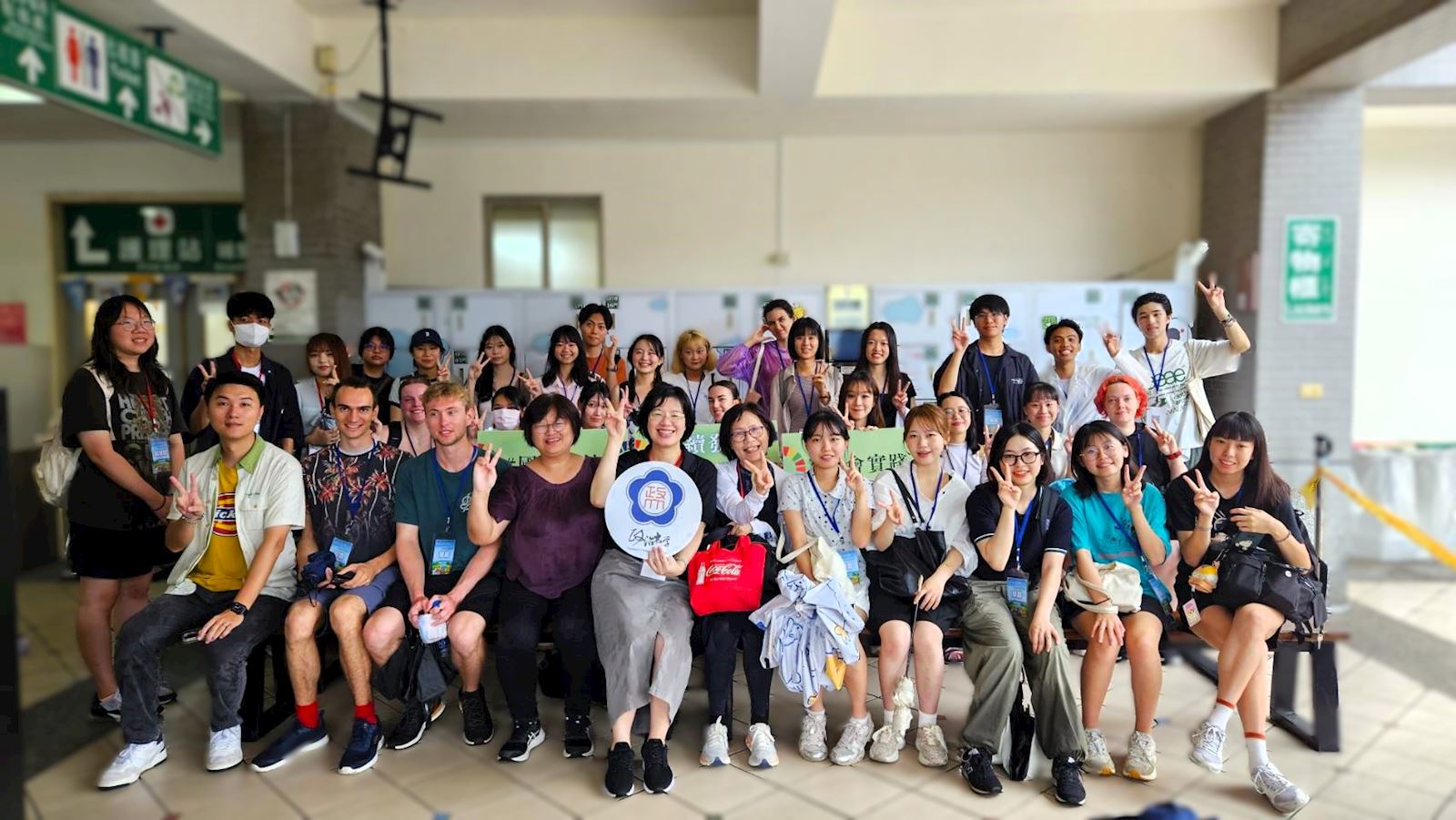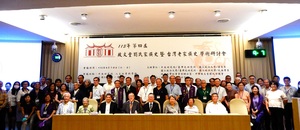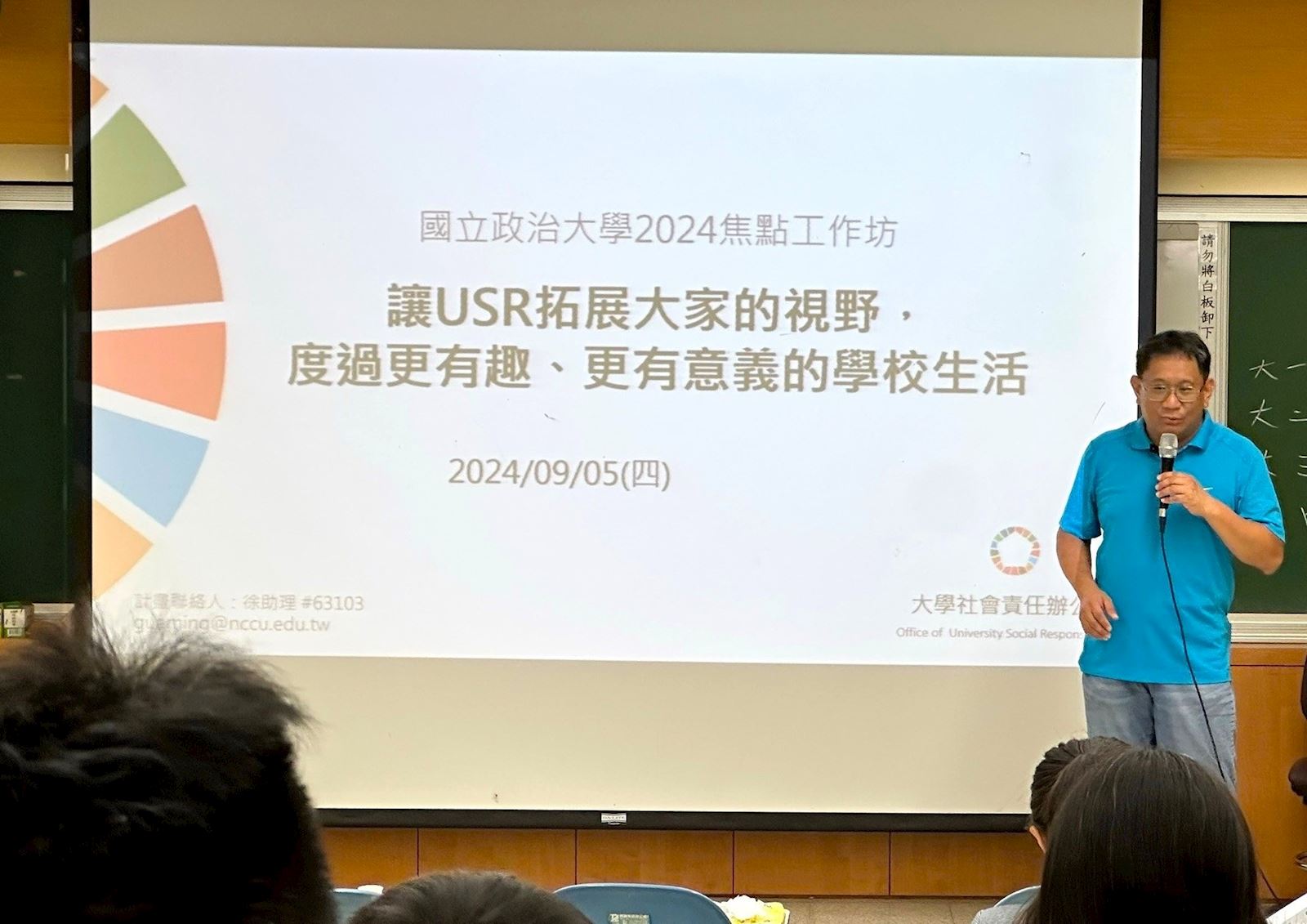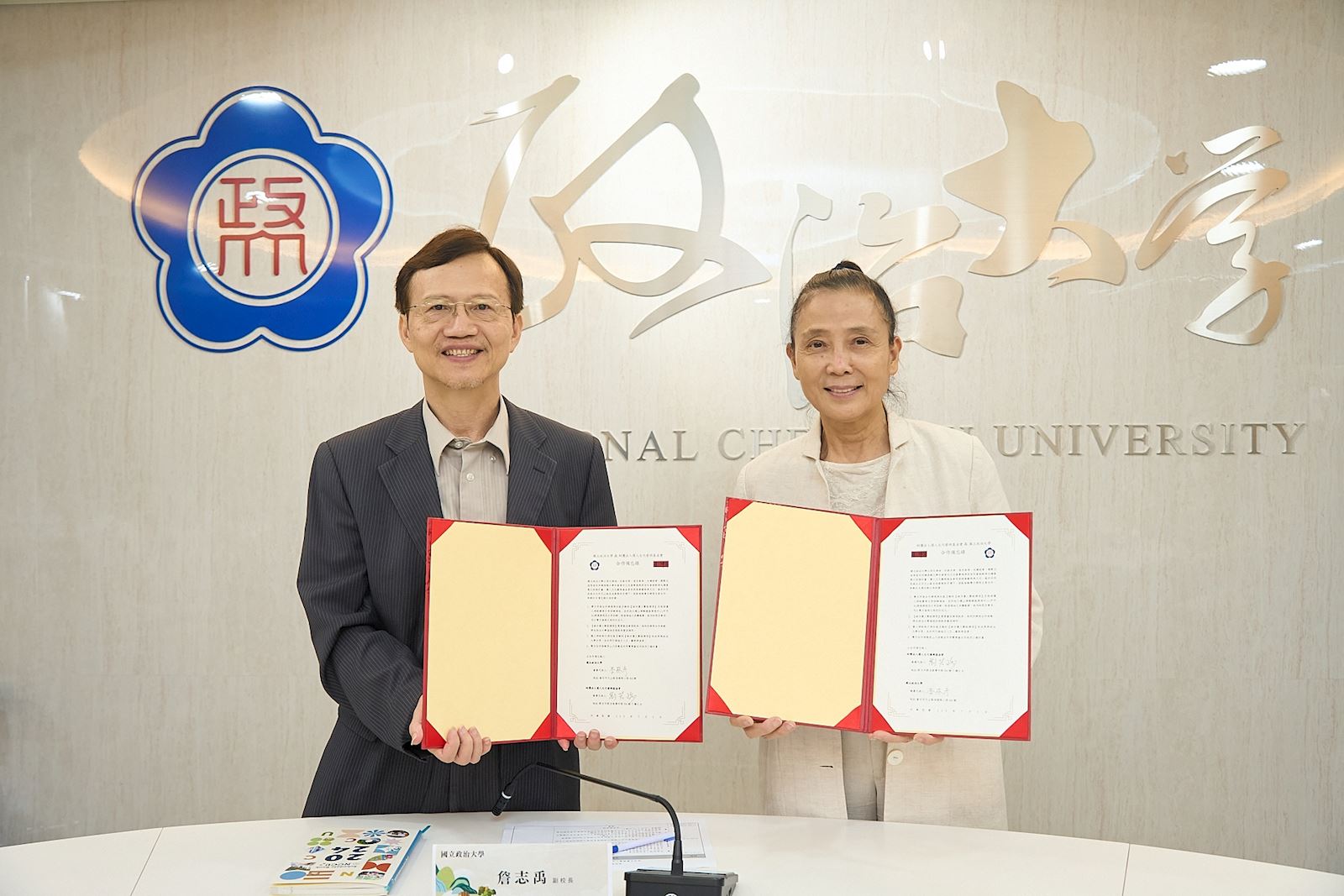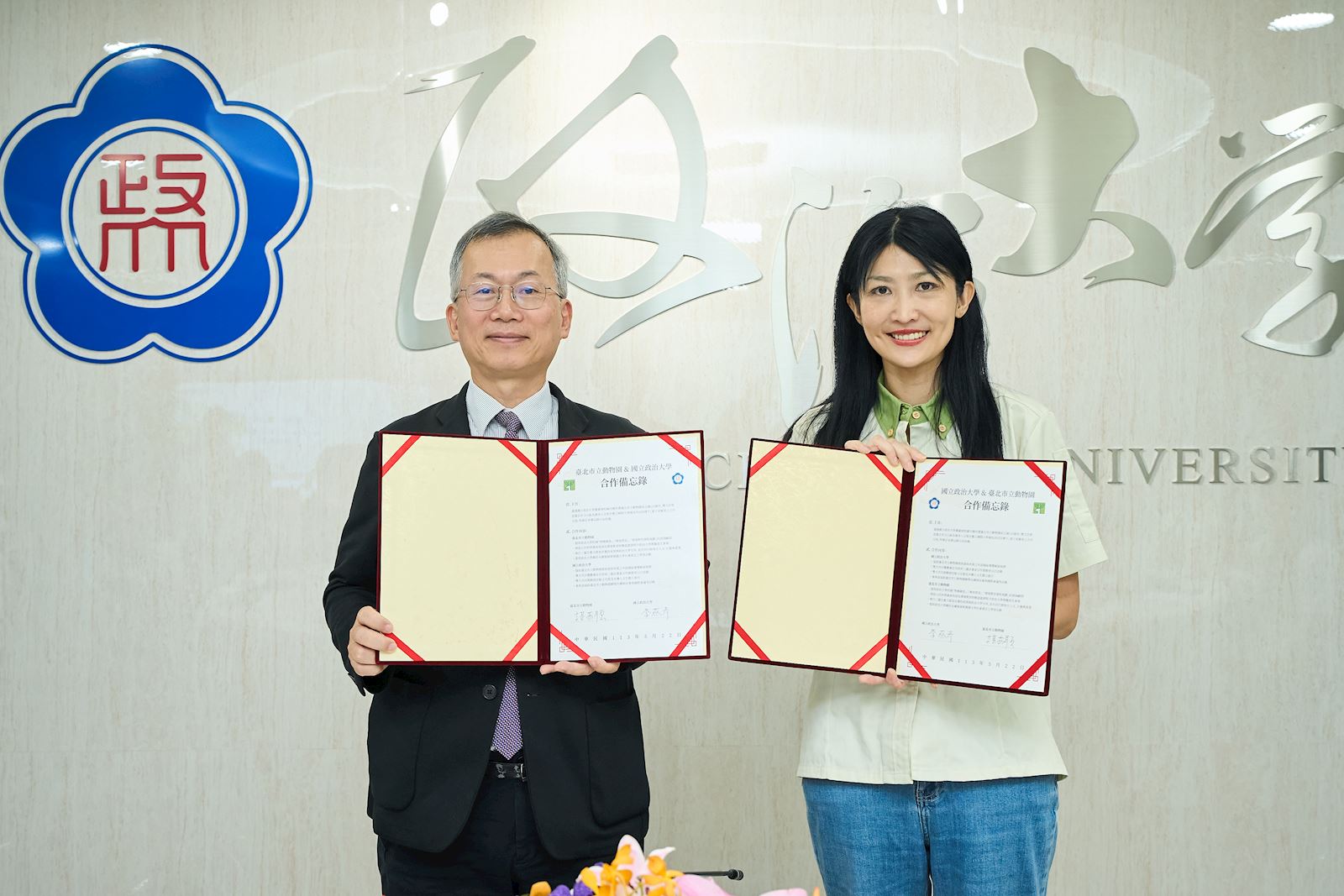【Office of University Social Responsibility News】
The second phase of the Ministry of Education's University Social Responsibility (USR) Practice Program emphasizes the connection between each project and the United Nations Sustainable Development Goals (SDGs). The program requires the review of whether the outcomes of the USR projects align with the SDGs indicators and spirit to ensure that the USR projects resonate with the global trend of sustainable development and strengthen international connections. Our university's USR project "Xinglong Ankang, Collaborative Wenshan," which involves university-community co-benefit efforts, has been implemented for several years with significant depth and large-scale impact, and its results are evident. Therefore, the Ministry of Education's University Social Responsibility Promotion Center entrusted this team to organize the fourth joint empowerment event on August 28.

USR: Key Development Projects of Our University
This event was attended by the university's president Guo Mingzhen, vice president Zhu Meili, director of the Research and Development Office Ni Mingxiang, and the dean of the College of Education Guo Zhaoyou. After Vice President Zhu Meili warmly welcomed the attendees, President Guo’s speech officially kicked off the event. He clearly stated, "Universities must fulfill their social responsibility in society, assist students in utilizing their talents, and improve various aspects of society, such as technology, politics, economics, and culture, to enhance people's lives and promote social progress." Following this, President Guo proudly listed various university initiatives, explaining that the university has been unwavering in its commitment to launching, promoting, and executing USR projects, encouraging attendees to actively participate in these efforts. The speech was concise, thought-provoking, and insightful.
Sustainable Development, USR, and SDGs in Dialogue
Li Mingxu, the convenor of the Sustainable Science Division in the Department of Natural Science and Sustainable Research Development of the Ministry of Science and Technology, gave a lecture titled "USR to SDGs: From Cross-disciplinary Knowledge to Action." He led the audience through a dialogue between sustainable management and USR. Professor Li emphasized the "K2A" (Knowledge to Action) process, which integrates and translates knowledge to achieve practical goals and solve social problems. He further pointed out that the purpose of a university is to serve society, and the practice of USR should be internalized within the core values of the university. Beyond education, universities should explore how to transform knowledge into a positive force that influences both students and society, ultimately leading to a "mindset change" and creating social impact. Professor Li concluded by incorporating SDGs into the dialogue, stressing that USR with sustainable development goals needs to be realized through cross-disciplinary research (TransDiciplinary Research, TDR) and the K2A approach.

The Interaction Between Blue and Green: The USR Achievements of Ocean University and NCU
The vice president of National Taiwan Ocean University (NTOU), Zhuang Jigao, and Professor Chen Gufan of National Chi Nan University (NCU) shared their university's USR practical experiences and achievements. Vice President Zhuang shared the university’s largest-scale project, "The Three Fisheries Prosperity Program," highlighting its connection with SDGs goals on "Marine Ecology" and "Global Partnerships," focusing on improving "fisheries, fishing villages, and fishermen" issues. He also explained other SDGs that are linked to the above two goals. Finally, Vice President Zhuang emphasized that "undertaking local responsibility" is the fundamental consciousness for USR projects and the vision for NTOU.
Professor Chen showcased the achievements of NCU’s USR project, which focuses on curriculum development, talent cultivation, and international service through a fundraising platform. Professor Chen then shifted the focus to green economics, pointing out that "the biggest problem in promoting this concept regionally is that economic development is often the most prioritized." Therefore, in promoting this concept, it is crucial to help farmers understand the potential economic benefits in the future, thereby achieving both economic and environmental sustainability goals.

Global and Local Perspectives on SDGs
Hong Zhijie, executive director of the Zhi Shan Foundation, delivered a lecture titled "SDGs Trends and Practices in the UN and Taiwan," highlighting the hierarchical nature of SDGs. He pointed out that different perspectives on issues will result in different understandings and descriptions. Executive Director Hong also shared his observations on international civil society in recent years, mentioning trends such as "civil society has been shrinking in the four years of SDG promotion" and "there is an increasing global focus on development effectiveness." In the latter part of his lecture, Executive Director Hong focused on Taiwan's sustainable development goals, asserting that these goals reflect the modernized image of Taiwan as a "smart island." In conclusion, Executive Director Hong emphasized the impact of COVID-19 on SDGs, the growing importance of resource application efficiency, the need for collaboration between civil society and the government, and the necessity for Taiwan to connect with the world through international civil organizations.

Social and Humanitarian Action: USR Practical Experience from Our University
Professor Fu Ruxin of the "Xinglong Ankang, Collaborative Wenshan" USR team pointed out that the program focuses on four major areas: "children and family services," "care for new immigrants," "legal assistance," and "support for economically disadvantaged groups," which align with SDGs on "eradicating poverty," "quality education," and "reducing inequality." She also emphasized the progressive nature of the program and its short-, medium-, and long-term goals. In addition to the planning of the program, she placed significant importance on the agency of students in field practice. Finally, Professor Fu pointed out that the universal humanitarian focus of the program is the driving force behind the team’s commitment to SDGs.
The K-12 program was shared by Professor Huang Weiwei, who highlighted the alignment with SDGs on "quality education" and "reducing inequality." She stressed the broad goals of the program: "In aesthetic education, we care not only about visual aesthetics but also about ways of thinking and perceiving the world, including relationships with oneself, the environment, and others."
Blending Reality and Virtual: Interactive Online and On-Site Engagement
To meet epidemic prevention needs, this event was held simultaneously online and in-person. The online audience actively participated, with viewership nearing 600. To enhance interaction between the online and on-site participants, the organizers used Slido to gather related questions and designed mechanisms for question popularity and anonymous submissions, which proved effective. There was a lively online Q&A session. These questions not only provided tangible exchanges for domestic USR teams but also emphasized fundamental issues hidden within the interaction between USR, SDGs, and sustainable development. This encouraged participants to rethink the philosophical foundations of these programs. In other words, through lectures and practical experience sharing, participants gained a deeper understanding and insight into USR and SDGs.
Linking to the United Nations Sustainable Development Goals (SDGs), Expanding the New Horizons of Domestic USR Teams
The fourth session of the University Social Responsibility Joint Empowerment Event was hosted by the NCCU USR "Xinglong Ankang, Collaborative Wenshan" University and Community Co-benefit Program Office on August 28, 2020. This event focused on the execution and outcomes of domestic USR teams in the practice of SDGs. The morning and afternoon sessions were respectively themed "Environmental Protection and Sustainable Development" and "Humanities Innovation and Sustainable Development," with domestic USR teams sharing practical experiences. Relevant experts and scholars were invited to provide guidance and deliver keynote speeches.
For more exciting content, please refer to the "Ministry of Education University Social Responsibility Promotion Center E-Book 'Summer Cultivation' p.92–99"
Related Links
Original Source: NCCU Campus News
2020 Joint Empowerment Event Series 4 | YouTube Live Video
